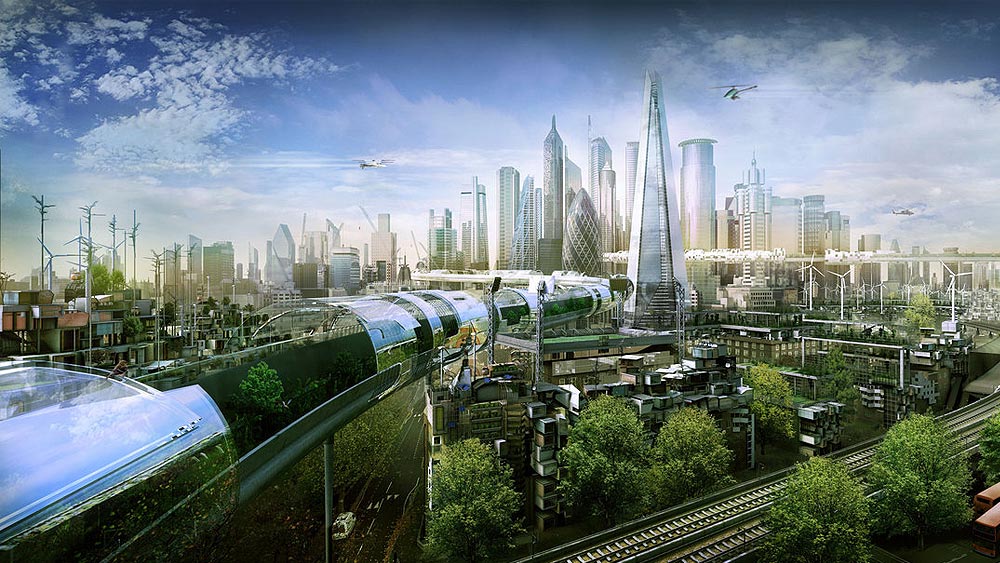 Last week, during our seminar, we had a debate about the topic of whether or not people in the future, will thank us for the decisions we are making today. I believe, the future holds a mirror to the decisions we make today, particularly in the realms of environmental stewardship and technological innovation. Whether or not people in the future will thank us relies on the paths we choose now.
Last week, during our seminar, we had a debate about the topic of whether or not people in the future, will thank us for the decisions we are making today. I believe, the future holds a mirror to the decisions we make today, particularly in the realms of environmental stewardship and technological innovation. Whether or not people in the future will thank us relies on the paths we choose now.
Fig 1 :Polluted, Destroyed London, source: londontopia.net
On the environmental front, our decisions regarding sustainability, conservation, and climate change mitigation will undoubtedly shape the world our descendants inherit. If we prioritize renewable energy, adopt eco-friendly practices, and implement policies that safeguard the planet, future generations may express gratitude for our foresight. At the same time, a failure to address environmental challenges could elicit reproach, as they grapple with the consequences of our inaction. Amongst the plethora of technological inventions such as solar panels, electric cars, wind mills, we have also been greedy and we have exploited our planet’s resources for our own good, without considering the long-term highly and irreversible detrimental effects.
It goes without saying that the vast majority is interested in finding ways in which we can help the Planet. There are multiple projects around the Globe aimed at fighting climate change and preserving the flora and fauna. One particular example that stands out to me in this regard is the Great Green Wall, which is a massive initiative aimed at combating desertification, land degradation, and climate change in the Sahel region of Africa. The Sahel is a semi-arid region stretching across the continent, just south of the Sahara Desert. The initiative involves the planting of a wall of trees and the implementation of sustainable land management practices to restore degraded land, promote biodiversity, and improve the livelihoods of local communities. Whilst projects like these are incredibly helpful, they tend to be enclosed in terms of popularity or influence. Although change can start from the smallest initiative, I find it that our current biggest issue is the fact that most governments are not willing to make the radical changes that are so desperately needed. There are constant talks about these matters amongst officials, such as the COP26 in Glasgow, where brilliant ideas were presented, yet little improvement or actual tangible, practical, not just theoretical, change has been done in the mean time.
Above all, the gratitude we receive from future generations depends on our ability to balance progress with responsibility. If we act with wisdom, empathy, and a long-term perspective, there’s a higher likelihood that people in the future will thank us for the decisions we make today. It is a call to embrace a legacy of mindful choices that consider the well-being of both the planet and its inhabitants. Just as presented in the photos, the outcome of our future can be abominable or flourishing and bountiful.
Sources:
Kaku, M. (2021) Three predictions for the future of humanity / Big Think ; with Michio Kaku.
Lennox, J. C. (2020) 2084 artificial intelligence and the future of humanity / John C. Lennox. Grand Rapids, Michigan: Zondervan.
Briggs, R. P. (2021) Emerging world : the evolution of consciousness and the future of humanity / Roger P. Briggs. Ocala, Florida: Atlantic Publishing Group, Inc.
Anon (1999) Humanity 3000 Seminar … : proceedings / Foundation for the Future. Bellevue, Wash: The Foundation.
Fig 2 : Vibrant, Nature Focused London , source: propertyupdate.com.au



